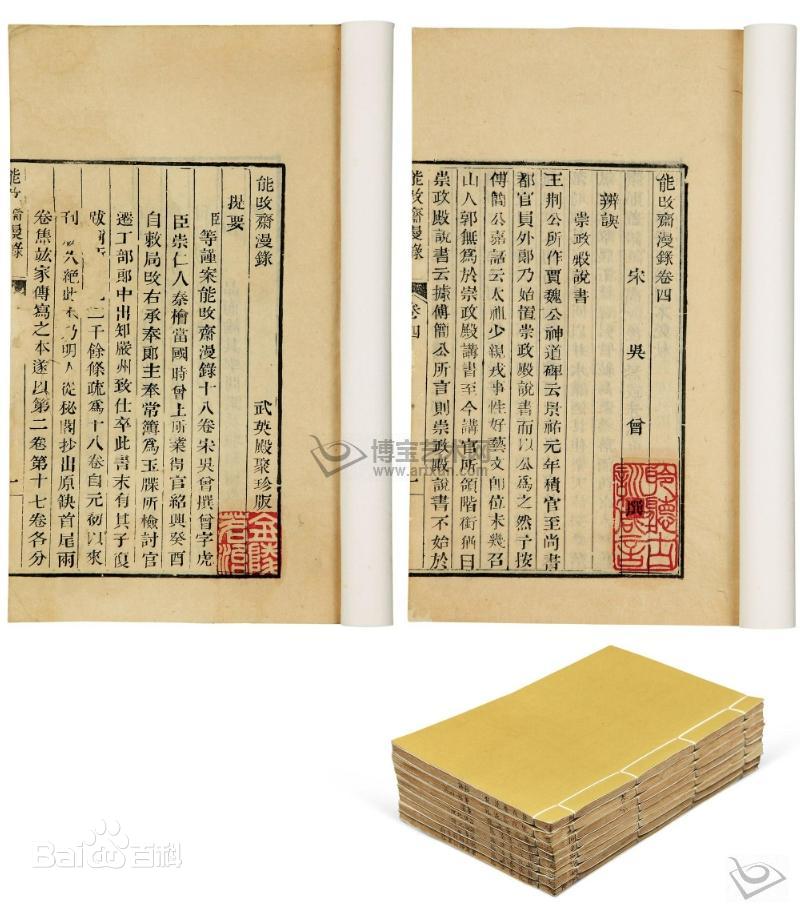A correct view that does not need to be
revised(不刊之說)
In the Song Dynasty of China, there was an
official called Wu Zeng.
He wrote a book in which he recorded some
interesting stories about famous people he had heard and seen in his life, and
his thoughts about reading.
A short story is recorded in the tenth
volume of this book.
An official of the Song Dynasty, his name
was Dong Dunyi.
I was inspired by his hard-working and
enterprising life experience.
There were many children in his father's
family, and his father was the tenth of all his brothers and sisters.
His family's financial situation was not
good, but his father still valued his education.
He did not lose his dream for the future
because of the poverty in which he lived.
He studied very seriously and joined the
central government when he grew up.
After he married and had children, he
attached great importance to his children's education. But because his child
lived in a very good environment since he was a child, his child did not study
hard.
Wu once wrote about the inspiration he
received in his book.
Dong Dunyi's life story reminds me of
several historical figures I read about in Chinese history books when I was a
child.
Su Qin during the Warring States Period in
China, his family was very poor, but he studied hard.
Su Qin did not lose his dream because his
family despised him, and later he became the prime minister of six kingdoms.
I looked around me and found that hardship
and difficulty in life often make a young person successful, while comfort and
wealth often make a young person fail.
Liu Xiu, the founding king of the Eastern
Han Dynasty in China, had royal blood, but his father was already a very
marginalised figure in the royal family.
So he has lived with civilians since he was
a child. He does not have much money and can only rely on his own hands to
create the future of his dreams.
When he grew up, he saved the Han Dynasty,
which was on the verge of collapse, and re-established a powerful Eastern Han
Dynasty that lasted for more than 200 years.
So I have a
correct view that I don't need to revise.
It is very
difficult for a person to make himself successful, but if a person was once
very successful but later failed, it will be even more difficult for that
person to make himself successful again by his own efforts after the failure.
This idiom means a point of view that is
correct and does not need to be revised.
Dear friend, what inspirations or thoughts
do you have after listening to this story?
What are your beliefs in life? Will you
write down your thoughts after reading the book?
I hope this story can give you some new
insights.
不刊之說(A correct view that does not need to
be revised)
中國的宋王朝,有一個官員,他的名字叫做吳曾。
他寫過一本書,記錄了他生平所聽到所看到的一些有趣的名人的故事還有他的讀書想法。
這本書的第十卷中記錄了一個小故事。
宋王朝的一個官員,他的名叫做董敦逸。
我聽到他努力進取的人生經歷後,讓我有所啟發。
他的父親家中有很多小孩,他的父親在所有兄弟姐妹中排行第十。
他家中的經濟情況不好,但是他的父親仍然很重視他的教育。
他沒有因為生活的貧困而丟失自己對未來的夢想
他很認真的念書並且在長大後進入中央政府工作。
他結婚生子後,他很重視自己小孩的教育。但是他的小孩因為從小生活的環境很好,所以他的小孩很不用功念書。
吳曾在書中寫下他所得到的啟發。
董敦逸的人生故事讓我聯想到我小時候讀過中國的歷史書中的幾個歷史人物。
中國的戰國時代的蘇秦,他的家境很貧窮,但是他很用功念書。
蘇秦沒有因為家人輕視他而失去自己的夢想,後來他成為六個王國的宰相。
我環顧我的四周,我發現生活的困苦與艱難往往更能讓一個年輕人成功,安逸與富有往往反而會讓一個年輕人失敗。
中國的東漢王朝的開國國王劉秀,他雖然有皇室血統,但是他的父親已經是皇室中的非常邊緣的人物。
所以他從小與平民生活在一起,他沒有很多金錢,他只能靠自己的雙手來開創出自己夢想的未來。
他長大後挽救已經頻臨瓦解的漢王朝,他重新建立了一個強大的並且延續超過200年的東漢王朝。
因此我得到一個正確且不用再修改的觀點。
一個人讓自己變的有所成非常困難,但是如果一個人曾經很有成就但後來失敗了,這個人在失敗之後透過自己的努力讓自己再度有成就更加困難。
這句成語的意思是一個正確也不用再修改的觀點。
親愛的朋友,你聽完這個故事有怎樣的啟發或有怎樣的想法呢。
你的人生中,你有那些人生信條呢?你會在看完書後寫下你的讀書想法嗎?
我期待這故事能讓你產生一些新的收穫。
出處為-能改齋漫錄-卷十-議論112條113條
